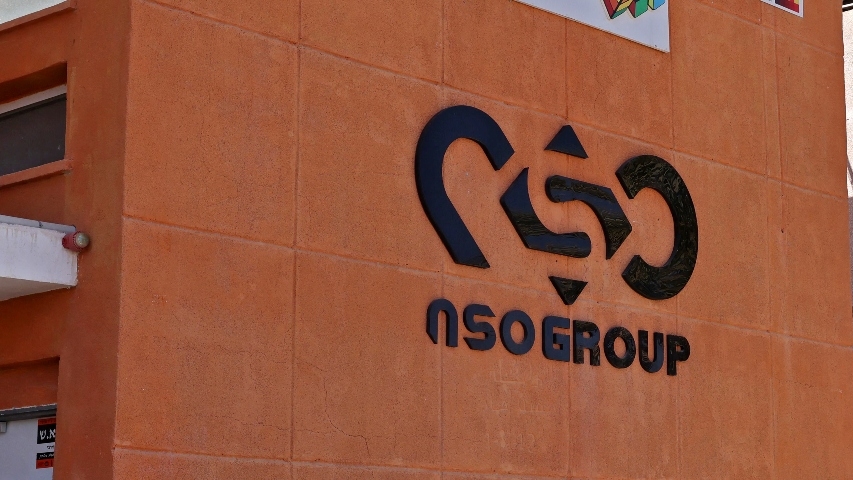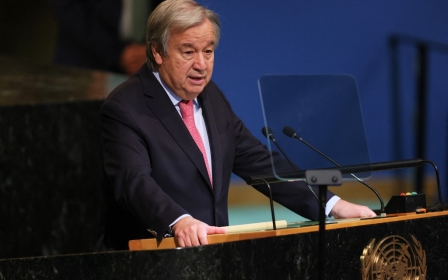US Justice Department calls on Supreme Court to dismiss NSO Group's immunity petition

The US Justice Department has weighed in on a lawsuit filed against the Israeli spyware company NSO, calling on the Supreme Court to deny NSO's petition to hear the case after an appeals court dismissed its push to assert legal immunity.
The amicus brief filed on Tuesday by the US solicitor-general, the department's fourth-highest ranking official, puts a wedge in the efforts by NSO Group to seek sovereign immunity from the lawsuit.
Brian Fletcher, who is serving as acting solicitor-general, stated in clear terms that "NSO plainly is not entitled to immunity here".
"There is no established practice - or even a single prior instance - of the State Department suggesting an immunity for a private entity acting as an agent of a foreign state. And no foreign state has supported NSO's claim to immunity," he wrote.
In April, NSO Group's lawyers turned to the nation's top court following a November 2021 decision by a US federal appeals court to dismiss its push to assert legal immunity from a lawsuit.
NSO Group has consistently argued that, because the company's product is used by foreign governments and law enforcement agencies, the firm is protected from civil lawsuits on American soil.
WhatsApp - owned by Meta (formerly Facebook) - filed its lawsuit against NSO Group in 2019, accusing the company of allegedly targeting its servers in California with malware to gain unauthorised access to approximately 1,400 mobile devices in violation of US state and federal law.
Last year, the Ninth Circuit Court of Appeals affirmed a lower court's decision to allow WhatsApp's lawsuit to continue, saying NSO Group did not qualify for sovereign immunity, even if its clients were foreign government agencies.
In June, the US Supreme Court requested that the Biden administration weigh in on the case.
"NSO took a gamble by asking the US government to weigh in on their sovereign immunity claim," said Natalia Krapiva, tech and legal counsel at the digital rights nonprofit Access Now.
"Fortunately, the Solicitor-General's opinion, along with the Department of Commerce ban list and other proposed measures, are clear signs that spyware companies cannot go around violating human rights and threatening US interests without being held accountable," Krapiva said in a statement.
Biden pushing against commercial spyware
NSO Group sparked outrage after a series of investigations in 2021, under the coordination of Forbidden Stories, showed how Pegasus, the spyware maker's flagship product, was used by governments to spy on activists, journalists and political dissidents.
Governments including Saudi Arabia, Morocco, Bahrain and the United Arab Emirates have been accused of using the spyware.
Last year, the Biden administration placed NSO Group on an "Entity List" of companies considered to be engaged in activities contrary to US foreign policy and national security. The administration accused it of enabling "transnational repression" with its spyware.
NSO Group has repeatedly denied allegations of enabling human rights abuses, saying that its spyware, which is licensed by the Israeli government, is meant to track criminals and "terrorists".
But several rights groups accuse the company of flouting human rights responsibilities, and called on the Israeli government to revoke the firm's permits.
Meanwhile, the Biden administration is further pushing against the use of commercial spyware.
In a letter to Congressman Jim Himes and other House Intelligence Committee members, the administration said it was planning an executive order that would "prohibit US Government operational use of commercial spyware that poses counterintelligence or security risks to the United States or risks of being used improperly".
The order could come as soon as early next year, according to the Washington Post. There is a "recognition that there was no regulation within the US federal government on how to address these tools", a senior official told the newspaper.
Middle East Eye delivers independent and unrivalled coverage and analysis of the Middle East, North Africa and beyond. To learn more about republishing this content and the associated fees, please fill out this form. More about MEE can be found here.





